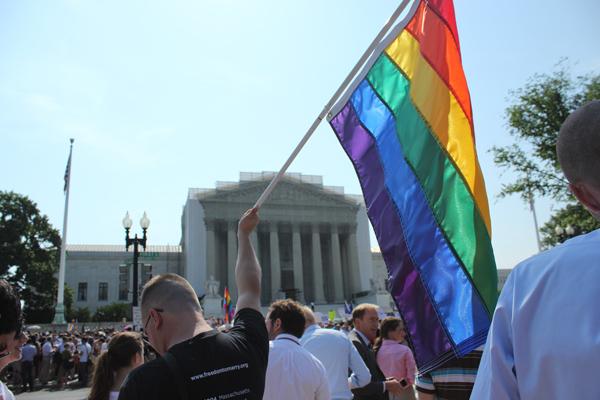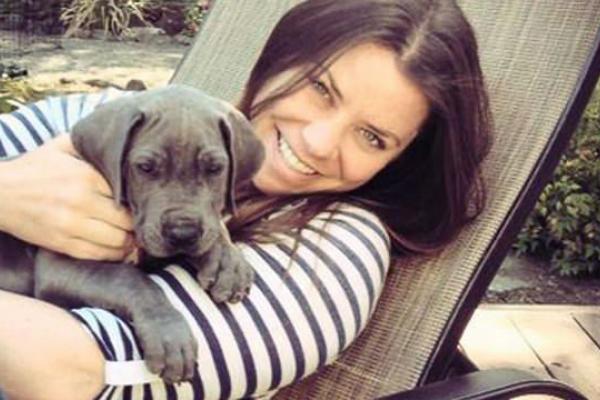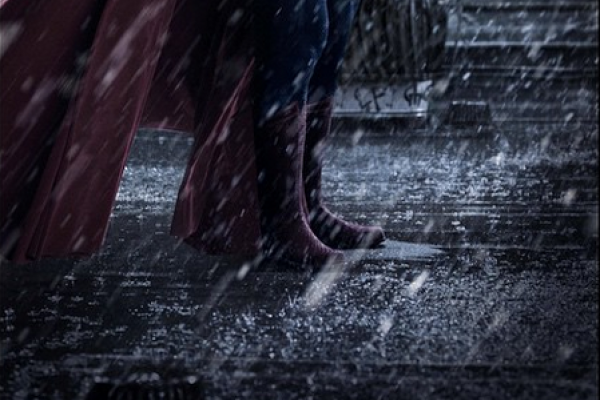In recently released Runaway Radical: A Young Man’s Reckless Journey to Save the World, Jonathan Hollingsworth and his mother, Amy Hollingsworth (best-selling author of The Simple Faith of Mister Rogers) tell the story of college-age Jonathan’s mission trip to the African country of Cameroon. After participating in a short-term mission trip to Honduras, Jonathan felt inspired to serve others in a more profound way. When he connected with a missions organization that promised him a year of exciting opportunities to serve in Africa — and he was able to raise the necessary funding — he seized hold of the opportunity with a vulnerable heart and a zeal for personal sacrifice.
After reading the above description, you might be surprised to learn that Runaway Radical is actually a story of spiritual abuse. But by the time Jonathan prepared to leave for his yearlong trip to Cameroon, his entire family — and his supporters — were groomed for abuse. They were groomed by ideas perpetuated by many people and many organizations, teachings many Christians would follow without much of a second thought. The first idea asserts that everything done in God’s name is good. The second idea works in companion with the first, declaring there is always more you can be doing, more you can be sacrificing, to prove your commitment to your God and to his mission.
When Jonathan traveled to Cameroon, not only did his host prevent him from serving in the ways he had hoped, his mission organization used him and his funding for their own selfish purposes with little regard for his health and well-being. During his time in Cameroon, Jonathan’s organization forbade him from developing relationships with locals whose behavior did not follow their stringent moral code, defined for him who the “real” Christians were, and denied him immediate access to medical care. Jonathan also learned that the leader of the organization lied to him about the status of the the supposed projects of which Jonathan was to be a part.
What began as Jonathan’s eager and well-intentioned trip slowly and painfully morphed into a constricted and disillusioning journey of physical, mental, emotional, and spiritual anguish.
Years ago as a child growing up in Cleveland, Ohio, I was befriended by a wonderful family around the corner from my home. The patriarch of the family, Edward Blunt Sr., was a hard-working executive for a telecommunication company; the matriarch, Roma Blunt, lovingly called Aunt Roma, was a consultant for several local educational institutions; and their son, Ed Jr., became one of my best friends and adopted brother.
Ed and I played sports, shared the same birthday, and graduated from high school and college together. Ed's family provided a unique gift for the young men in our neighborhood. As a result of their southern roots and deep-rooted village values, they believed adults — especially adults of African descent — had a responsibility to aid and assist in the development of young men in the community.
At least weekly, a gang of musty, sweaty, boisterous young men crowded into the Blunt household to take part in a ritual of culinary excellence provided by Aunt Roma. In this house we did not own, pay for, or live in, we witnessed the southern artistry and gastric creativity produced with a palette of collard greens, gumbo, cornbread, sweet potatoes, macaroni and cheese, fried okra, and fish on the canvas of our senses. The white house on Green Road became our hangout, respite, and my second home. Since I lived geographically closest to the Blunts’ home, I found myself at their address more frequently than other "brothers" in our network.
Upon one of my routine visits after finishing another amazing meal, Aunt Roma passed on a special gift. She handed me a key to the home. She stated with matter-of-fact ease, "Otis, you're over here enough, you might as well have a key."
After I said thank you, she began to reemphasize the rules of the house.
"You are always welcome here … you are welcome to eat, rest, and relax ... I trust you, and as long as you abide by the rules of the house and your parents are aware of where you are, this door is always open to you."
I was given access to the Blunts’ home because of my relationship with their son. I was given access to a home I did not create, build, or purchase. Because of my relationship with their son, I was given access to an environment I did not create.
As the world looks toward the United Nations Conference on Climate Change in Paris in December, it would serve us all to reflect on California.
When I moved to California in August 1991, the state’s five-year drought changed the most mundane aspects of life. Throughout my East Coast childhood, this is how I learned to brush my teeth: Turn the knob on the sink, place the toothbrush under the running water, brush, spit, brush again, spit again, place your Dixie cup under the running water, rinse your teeth, gargle, spit, use the running water to rinse the sink of all your spit, then — and only then — turn the water off.
I performed that basic ritual during my first week in Los Angeles. My roommate scowled. She had moved to LA years before and had lived through the state’s drought. Over the course of those five years, every resident of California had taken ownership of the state’s dire situation by altering the daily routines of their lives.
Common measures included: placing bricks in the backs of toilets to use less flushing water, only flushing once or twice a day, only using the absolute minimum amount of water necessary to brush one’s teeth, cooler time-tight showers, and the list goes on.
History records my first months in Los Angeles as the tail end of the state’s late 1980s drought. People danced in the streets of South Central, East LA, and Santa Monica as El Niño’s waters soaked cracked earth in late 1991. But as citizens of a state in crisis, our shared sense of duty had transformed small changes in daily routines into a collective culture of conservation. In fact, to this day, many Californians still practice those same measures.
But it’s been 24 years since those dire days and California is fighting again, slugging into its fourth year of another drought. But this one is different. This is the worst drought in 1,200 years, according to a study published in the American Geophysical Union journal.
Standing in a brown field that should have been packed with several feet of snow on the first day of Earth Month, California Gov. Jerry Brown said: “It’s a different world. We have to act differently.”
Sitting under a veranda at the former headquarters of Somali Airlines, Ali Bashir sipped coffee and chewed khat, an African herb, as he recounted 15 years of anarchy fomented by al-Shabab Islamic terrorists.
“Life is very hard here,” he lamented.
“There’s nothing to eat and nowhere to work. But the rebels will come and still ask you for money.”
Since Somalia’s central government collapsed in the early 1990s, al-Shabab has emerged as the greatest threat to international efforts to rebuild the east African nation. The al-Qaida-linked militants extort, kidnap, stage terror attacks, and control remote areas of the countryside.
Al-Shabab gained renewed global attention last week, when a small band of militants massacred 148 people at Garissa University College in neighboring Kenya, where they singled out Christians for execution. In 2013, al-Shabab terrorists attacked the Westgate Mall in Nairobi, Kenya, murdering nearly 70.
In the wake of this month’s attack, Somalia President Hassan Sheikh Mohamud called for more cooperation between Kenya and Somalia to eliminate al-Shabab, and Kenyan jets pounded two al-Shabab camps in Somalia.
Bashir, 28, who sold clothing before fleeing here, doubted the Somali government could do much about the terrorist group. He fled to the capital here a few years ago after al-Shabab seized control of a region in the south. He now lives in the old airlines headquarters with 1,000 other families.
“I have grown up in this country without knowing peace or stability,” said Bashir, a father of six.
The day after Easter, it snowed. I was carrying in my last buckets of sap before leaving for Portland and was not surprised by the flurries, but they still stymied my expectations of warmer weather. The equinox had passed several weeks before, and while the start of spring had been marked on the calendar, it was (is) dragging its feet in coming.
Who has known the mind of God or even a good 7-day weather forecast?
We see and know in part. Certainty has never been the steady state of the human condition. Our lives are stretched with the awareness that clarity, at its best, comes with a smudge.
The experience of knowing we do not know can be felt in different ways. One is confusion, another, mystery. Both are confrontations of the hidden or unknown, but one brings us to awe and the other despair. One can leave us feeling isolated and the other in wonder at our relationship to that which is so much greater than ourselves.
The space between the two is not in the level of knowledge but rather our relationship to the knowing and unknowing itself. In the midst of our unknowing, we are faced with a choice: passive uncertainty or the stumbling action of faith. The beginning of wisdom is not the expectation of certainty with knowledge but the understanding that the kind of life most worth living is always an act of faith.
State bans on same-sex marriage have been justified based on judicial precedent, states’ rights, regulating procreation, optimal child-rearing, and centuries-old tradition. Those reasons also have been loudly debunked.
When it convenes April 28 for one of the most historic oral arguments in its 226-year history, the Supreme Court will hear all of those arguments and more from five lawyers representing gays and lesbians on one side, and the states of Kentucky, Michigan, Ohio, and Tennessee on the other. But the justices also will have read what dozens of federal trial and appeals court judges have written.
Here’s a look at five major arguments cited by those appeals court judges in their rulings. In addition to the four Midwest states whose bans were upheld, the circuit courts struck down similar bans in Idaho, Indiana, Nevada, Oklahoma, Utah, Virginia, and Wisconsin.
1. Judicial Precedent
The first hurdle in the gay marriage debate facing lower court judges has been what to make of a 1972 Supreme Court ruling that denied marriage rights to a gay couple in Minnesota.
The one-line summary decision in Baker v. Nelson upheld the state’s ban on same-sex marriage “for want of a substantial federal question.” At the time, marriage was seen as the exclusive purview of the states.
Because of the wealth of judicial rulings that have come in the following four decades, most federal judges have reasoned that Baker does not tie their hands.
“Since Baker, the court has meaningfully altered the way it views both sex and sexual orientation through the equal protection lens,” the U.S. Court of Appeals for the 4th Circuit ruled in the Virginia case, Bostic v. Schaefer. The panel’s majority noted that the justices did not even mention the 1972 case when they struck down a key section of the federal Defense of Marriage Act in 2013.
In the case of Obergefell v. Hodges now before the Supreme Court, however, Judge Jeffrey Sutton of the U.S. Court of Appeals for the 6th Circuit differed with all the previous rulings.
“This type of summary decision, it is true, does not bind the Supreme Court in later cases,” he wrote for his panel’s 2-1 majority.
“But it does confine lower federal courts in later cases.”
2. State's Rights
More than a dozen states, plus the District of Columbia, are considering controversial medically assisted death legislation this year.
The laws would allow mentally fit, terminally ill patients age 18 and older, whose doctors say they have six months or less to live, to request lethal drugs.
Oregon was the first state to implement its Death with Dignity Act in 1997 after voters approved the law in 1994, and four other states — Montana, New Mexico, Vermont, and Washington — now allow for medically assisted death.
As of April 10, at least another 25 states have considered death with dignity bills, according to Compassion & Choices, a Denver-based nonprofit organization that advocates for these laws. Some of those bills already have died in committee.
“The movement has reached a threshold where it is unstoppable,” said President Barbara Coombs of Compassion & Choices, who was also chief petitioner for the Oregon Death with Dignity Act.
The issue of medically assisted death rose to prominence last year with the case of Brittany Maynard, 29, who was told she had six months to live after being diagnosed with brain cancer. Maynard was a strong advocate for Death with Dignity, and when she learned of her grim prognosis, she moved from her home state of California to Oregon where terminally ill patients are allowed to end their own lives.
“I would not tell anyone else that he or she should choose death with dignity,” she wrote in an op-ed on CNN.com.
“My question is: Who has the right to tell me that I don’t deserve this choice? That I deserve to suffer for weeks or months in tremendous amounts of physical and emotional pain? Why should anyone have the right to make that choice for me?”
Controversial American author Ayaan Hirsi Ali has been a regular fixture on major news networks lately, discussing her most recent book, Heretic, as well as her views on various issues that include violence in Islam and the treatment of Muslim women.
An ex-Muslim, Hirsi Ali began her rise to fame with her book Infidel, which documented her hardships growing up as a Muslim woman in her native Somalia. In light of her turbulent past, Hirsi Ali has gained strong following in the West. Prominent atheist author Richard Dawkins has called her a “hero for rationalism and feminism.” Now, after the release of Heretic, some are again cheering her as a brave champion for women’s rights, especially for Muslim women.
While many in the West have been receptive to her case, Hirsi Ali’s vicious attacks on Islam and her support for the war on terror, fought mainly in Muslim countries , have left her with few friends among Muslims, including women. Hirsi Ali once famously called Islam a “nihilistic cult of death,” and she has advocated for a war with Islam.
Many examples of brave Muslim women exist in the Muslim world, yet it is not surprising that Hirsi Ali, regardless of her dangerous assertions, has stolen the limelight. As the American government continues to indulge in the war on terror, Hirsi Ali’s story makes her the perfect candidate to provide validation for the atrocities committed by the U.S., from Somalia to Pakistan.
The war on terror is largely a bipartisan issue. But media personalities, especially neoconservatives, have rushed to Hirsi Ali’s defense . Seemingly ever ready for war in the post-9/11 era, they look to Hirsi Ali’s views to help legitimize their own anti-Islam bias and imperialist ambitions.
It is no surprise, then, that she is a fellow at the American Enterprise Institute, which has consistently tried to foster antagonistic relations between the U.S. and the Muslim world.
The liberal media, which have provided a more balanced view on Islam, also sympathize with Hirsi Ali’s detrimental views, especially in its simplistic portrayals of women in the Islamic world.
I had the sense, as a child, that God’s goodness and mercy would only follow me all of the days of my life if I was “good” and Christian. And I had the sense that good and Christian was a narrow way.
This meant two things. First, only “good” people, loving and kind people, people who had not erred or strayed or made mistakes or broken the law or never “back-slid” were the sheep worthy of grace and mercy. Second, only Christian people were in the fold. Not Jews, Muslims, Buddhists, Sikhs — no, the steadfastly loving God had only space for those of us who accepted Jesus and our Lord and Savior AND who had lived sinless lives.
My child-like sense of “good” shifted when I was a teen serving as an elder in the Seventh Presbyterian Church in Chicago. Being up close and personal with my pastor, the late Rev. Oliver Brown, III and the adults around the table were first- hand lessons of the wide-open space of God’s love in Jesus Christ.
These good people — ordained people — were flawed and funny. They fussed and fought. They forgave each other, as God forgave them. My idea of good stretched and breathed and exhaled judgment and inhaled, experientially, that only God is good, that God in Jesus Christ shows this goodness in a particular way, and that all of God’s people are flawed and loved.
As a young adult before seminary, living life in the world, working, loving, breaking up, making up, having growing pains about identity and purpose and vocation, my spiritual muscles strengthened around the concept of the good shepherd who would love me enough to come and get me if I wandered.
Jesus is the ideal shepherd, the model shepherd, the best kind of shepherd; the one who makes the promises of God available to all of God’s people by laying down his life for the sheep.
I had not yet made the leap but most certainly have now to John 10:16.
I have other sheep that do not belong to this fold. I must bring them also, and they will listen to my voice. So there will be one flock, one shepherd.
This loving Shepherd has a huge and diverse flock.
Superman was introduced on his first page as a “champion of the oppressed…sworn to devote his existence to helping those in need.” Those actions are a fundamental expression of his identity, an inalienable product of who he is. Lara and the Kryptonian scientist Jor-El loved him enough to help him break away from their planet, giving him a chance at life. The farmers Jonathan and Martha Kent raised him in a way that left him intimate with humility and human frailty. Combine those with the confidence that comes with knowing that great power is a simple fact of his anthropology, and Superman can't help but position himself alongside society’s powerless. Crime will always find him because he loves its victims.
Batman, on the other hand, does not act in response to people he loves. He acts in response to people he hates. At heart, he is still a child overwhelmed by loss and obsessed with lashing back against those that inflicted it upon him. Bruce Wayne (a name cobbled together by his writers so as to leave the reader with a fragrance of colonialism) created the Batman identity and fights crime in his home city so that he can re-shape the world as he sees fit. He was first introduced to readers as fighting a “lone battle against the evil forces of society,” and fighting that battle has always been the measure by which the character has justified his own existence.
For any Christian who cares enough about social justice to be reading Sojourner’s website, this raises a compelling series of questions: Are you working to make the world more just because you are confident that your Father loves the victims of injustice? Because your King voluntarily shared the plight of the humble? Because you know that the Spirit will make all things new and you want to be a part of giving people a foretaste of that now? Or are you pursuing justice because you’re afraid of what the world will look like if you don’t? Because you can’t see your own value if you aren't "fighting the good fight?"









